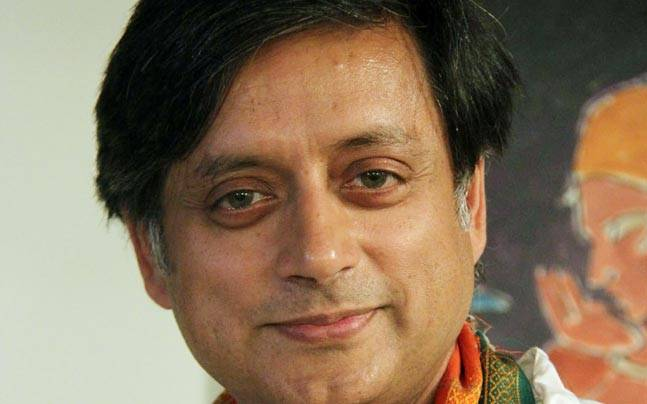Shashi Tharoor, a politician with no experience at the grassroots level in India has been continuously projected as a potential Prime Minister by the English-speaking elite. This agenda has been particularly pursued by the English media outlets and select western media channels which want the colonial hangover in India to stay forever. Many newspapers and electronic media outlets have an inherent bias against India and have been caught peddling India hating narrative from time to time.
The New York times, one such prominent American newspaper known for its ideological inclinations as far as India’s state of affairs is concerned has done a sympathetic story on Shashi Tharoor. The central theme of the story is to malign the investigation authorities and raise questions on the legitimacy of the investigations of Sunanda Pushkar’s death. The story starts by eulogizing Shashi Tharoor in every possible way. There was a naive attempt to exploit the image of Shashi Tharoor as being favourable to the western world. There was special emphasis on his stint at the United Nations, his “huge vocabulary” and Oxbridge accent. Thereafter, New York Times tries to cast aspersions on the investigating authorities. Without naming anyone, the New York Times refers to Shashi Tharoor’s statements while trying to point out that Sunanda was not kind who would have committed suicide. It also states that, according to Tharoor and other Congress leaders, this is a case of political vendetta. Finally, it tries to raise doubts as to why the case is being pursued in the first place, even though a conclusion had already been arrived at after investigations into the case.
The New York Times in a desperate attempt to defend Shashi Tharoor, who is loved among Indian elites as well as those prejudiced against India elsewhere, narrates only one side of the story. There have been allegations of foul play into Sunanda Pushkar’s death. The initial investigations began during the UPA tenure when Shashi Tharoor was a cabinet minister. The suspicion that investigations could have been influenced or manipulated cannot be ruled out. Therefore, it is desirable that a probe for conclusively deciding the case is carried out. In fact, there have been serious allegations of poisoning, while former Delhi police commissioner Bassi had also hinted that Sunanda Pushkar had been poisoned.
The charges pressed against Tharoor by the Delhi Police are not without substantial backing. An SIT probe has been undertaken into the matter and even FBI has been roped in to investigate into allegations of poisoning. In 2015, an AIIMS board had reported that there were signs of poisoning. Thus, it was more than justified on the part of the police authorities to launch proper investigations into the high profile case.
This story by the New York Times is an attempt at influencing Indian politics without even going into the depths of it. The story describes Shashi Tharoor as Prime Minister material, even though New York Times has no idea about the ground realities of Indian politics. The common man in India does not see Shashi Tharoor as Prime Minister material. The New York Times want to portray him as a Prime Ministerial candidate only because of the fact that Shashi Tharoor is seen as the representative of the English-speaking elites in India. The New York Times is still living in a world of its own and feels that India is still living in the era of cultural imperialism. An insignificant and miniscule section of the population may be impressed by the fancy vocabulary and over-exaggerated accent of Shashi Tharoor but he will never be able to lead or represent the masses. Believing that mere expertise in a foreign language imposed upon us by a colonial power in the past, will by itself be adequate to hold the top post in the country, is equivalent to living in a fools’ paradise.
As far as India is concerned, New York Times has always spewed hate and venom. It is known for its prejudice against India. Whether it was calling one of the greatest singers to have graced the planet, Lata Mangeshkar, a “so-called singer”, or baselessly accusing Indian sportspersons of indulging in drugs and steroids, New York Times has always been desperate to malign India in every sphere of life. The New York Times has neither the expertise nor the knowledge to comment about Indian politics, let alone defend a man wanted for abetment of suicide by labelling the charges as ‘political vendetta’.
